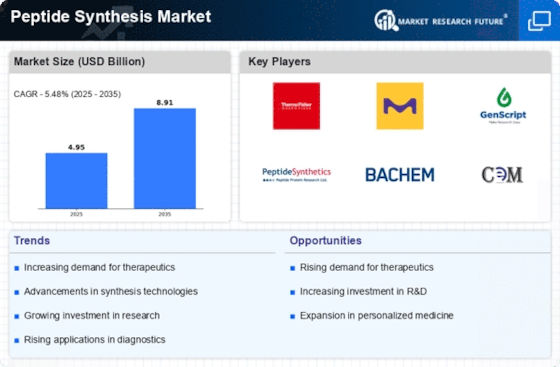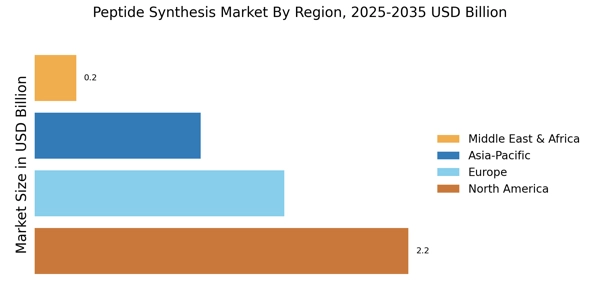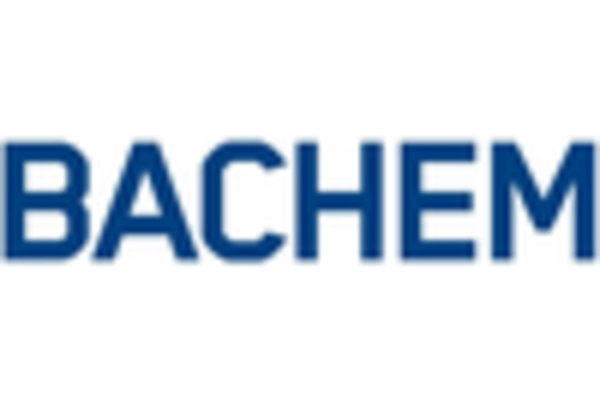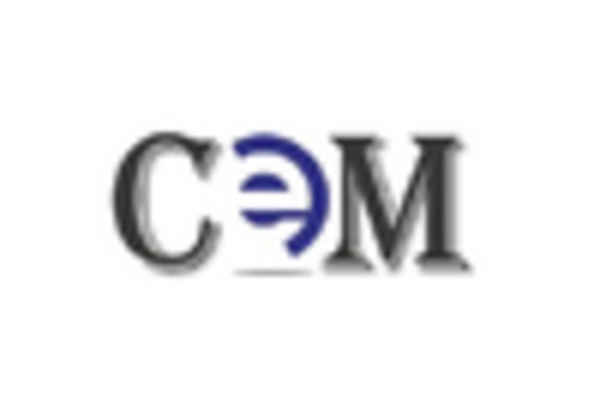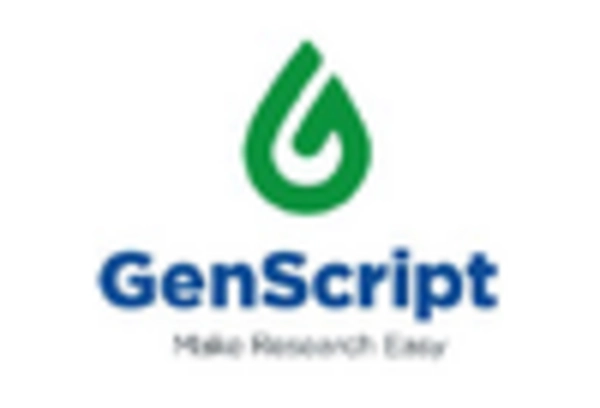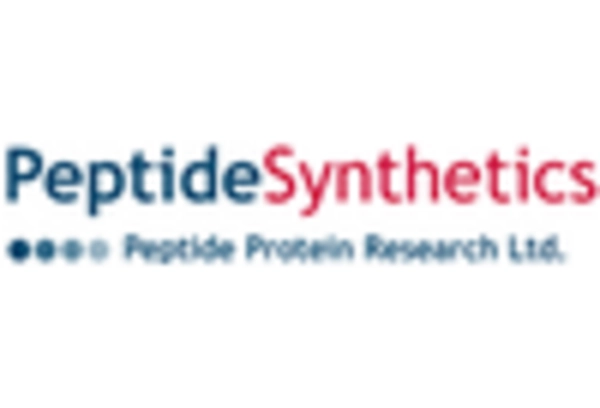Expansion of Research in Proteomics
The Peptide Synthesis Market is significantly influenced by the expansion of research in proteomics, which focuses on the large-scale study of proteins and their functions. As researchers delve deeper into the proteome, the need for high-quality peptides for various applications, including drug discovery and biomarker identification, is becoming more pronounced. The proteomics market is projected to grow at a compound annual growth rate of around 10%, reflecting the increasing importance of protein analysis in biomedical research. This growth is likely to drive demand for peptide synthesis, as researchers require custom peptides for experimental validation and therapeutic development. Consequently, the Peptide Synthesis Market stands to benefit from this burgeoning field of study.
Advancements in Analytical Techniques
The Peptide Synthesis Market is benefiting from advancements in analytical techniques that enhance the quality and efficiency of peptide synthesis. Techniques such as mass spectrometry and high-performance liquid chromatography are becoming increasingly sophisticated, allowing for better characterization and purity assessment of synthesized peptides. This improvement in analytical capabilities is crucial, as the demand for high-quality peptides continues to rise, particularly in research and therapeutic applications. The market for analytical instruments is projected to grow significantly, with a compound annual growth rate of around 7%. Consequently, these advancements not only streamline the synthesis process but also ensure compliance with regulatory standards, thereby bolstering the Peptide Synthesis Market.
Growing Interest in Personalized Medicine
The Peptide Synthesis Market is witnessing a growing interest in personalized medicine, which emphasizes tailored therapeutic approaches based on individual patient profiles. This trend is particularly relevant in oncology and rare diseases, where specific peptide-based therapies can be developed to target unique biomarkers. The market for personalized medicine is expected to reach approximately 2 trillion dollars by 2030, indicating a substantial opportunity for peptide synthesis. As healthcare providers increasingly adopt personalized treatment plans, the demand for custom peptides is likely to rise, thereby propelling growth in the Peptide Synthesis Market. This shift towards individualized therapies necessitates advancements in synthesis technologies to accommodate diverse patient needs.
Increasing Investment in Biopharmaceuticals
The Peptide Synthesis Market is experiencing a surge in investment, particularly in biopharmaceuticals. As pharmaceutical companies increasingly recognize the therapeutic potential of peptides, funding for peptide-based drug development has escalated. Reports indicate that the biopharmaceutical sector is projected to reach a valuation of over 500 billion dollars by 2025, with peptides playing a crucial role in this growth. This influx of capital is likely to enhance research and development efforts, leading to innovative peptide therapies. Furthermore, the increasing prevalence of chronic diseases necessitates the development of novel treatment options, thereby driving demand within the Peptide Synthesis Market. As a result, companies are focusing on optimizing synthesis processes to meet the growing needs of the biopharmaceutical sector.
Regulatory Support for Peptide Therapeutics
The Peptide Synthesis Market is positively impacted by regulatory support for peptide therapeutics, which is becoming increasingly favorable. Regulatory agencies are recognizing the potential of peptide-based drugs, leading to streamlined approval processes and guidelines that facilitate the development of new therapies. This supportive environment is crucial, as it encourages pharmaceutical companies to invest in peptide research and development. Recent initiatives aimed at expediting the approval of innovative therapies are likely to enhance the market landscape for peptide synthesis. As a result, the Peptide Synthesis Market is expected to experience growth driven by the increasing number of peptide therapeutics entering the market, supported by favorable regulatory frameworks.


